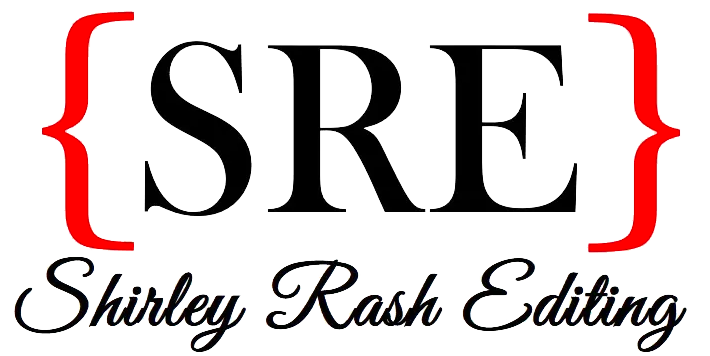When I asked for suggestions on editing topics to write about, Elise Bishop—my college grammar instructor—suggested I write about passive voice.
As an editor, I do get asked a lot about passive voice. And what I’ve noticed in my years as an editor (and before that as a composition instructor and before that as a writing tutor working for Mrs. B. in a writing center) is that it is often hard for writers to know what passive voice is. They know they’re supposed to avoid it, but how to do so and why are murkier.
So, let’s talk more about passive voice.
What is passive voice?
A passive sentence simply means that the subject of the sentence is not committing the action of the verb.
My title for this post is in passive voice. That passive sentence didn’t write itself—someone else wrote it. Rephrasing it into active voice would be “Shirley wrote a passive sentence.”
Do you see the difference?
Why do so many people say to avoid writing in passive voice?
Passive voice, by its very nature, tends to be vague and/or wordy. Let’s look at that example again—the difference between the passive (“A passive sentence was written”) and the active (“Shirley wrote a passive sentence”) is striking. Though they’re the same length, the former is incredibly vague.
I double-majored in English and history in college, and my college history professors were vigilant in their quest to get us to write active rather than passive sentences. Historical writing should be direct and clear, so of course, we—as budding young historical writers—needed to learn to avoid using passive voice because of how vague and wordy it is.
One of the more infamous passive sentences in the popular conscience is the oft-used “mistakes were made.” It’s popular with politicians and other people responding to situations precisely because it is vague. It’s merely an acknowledgement that a mistake occurred, without taking ownership for the mistake. You can see why that’s appealing to the one having to acknowledge the mistake but problematic for the people wanting someone to take responsibility.
How do I identify passive voice?
When I was tutoring students at the writing center and then later teaching Comp I, I taught my students three different ways to identify passive voice and then encouraged them to use whichever one worked the best for them.
The first way to identify passive voice is to do what we talked about earlier—identify whether or not the subject of the sentence is committing the action of the verb. You’ll often discover the sentence has no actual subject (like with “A passive sentence was written”), but sometimes it’s tacked on at the end: “A passive sentence was written by Shirley.”
The second way to identify passive voice is to look at the verbs being used. Passive voice requires a BE verb (am, are, is, were, was, be, being, been) combined with a past participle verb. In our example, “was written” has a BE verb (“was”) and a past participle (“written.”).
I’ve often found that people usually will mistake something for passive voice because they see a BE verb and they assume it is passive. Strunk and White actually repeatedly make this mistake in The Elements of Style. However, that BE verb needs to be combined with a past participle verb to actually make a passive construction.
The third way to identify passive voice—and infinitely the most fun—is to tack “by zombies” at the end of the sentence. If the sentence works, then it’s passive. My students always really enjoyed doing this. It certainly livened up some otherwise dry academic writing. 😊 With our example sentence, “A passive sentence was written by zombies” does indeed work, confirming it’s passive. The reason this trick works is because it is providing a subject for the sentence. If you try tacking that onto an active sentence, it won’t make sense: “Shirley wrote a passive sentence by zombies.” That’s because the sentence already has a subject, so adding another subject is confusing and unnecessary.

How do I fix passive voice?
Identify the subject and rephrase the sentence so that the subject is committing the action of the verb.
“A passive sentence was written.”→”Shirley wrote a passive sentence.”
“Mistakes were made.”→”Zombies made a mistake.”
Is passive voice ever acceptable?
I’ve seen a lot of writing advice that says passive voice should never be used. I certainly think it should be avoided in most writing due to it being vague and wordy, but there are some instances where passive voice can be quite effective and used to great rhetorical effect. In those cases, I don’t think the passive voice should be removed. As with pretty much everything when it comes to writing, context is key.
The vagueness that often makes passive voice a problem is sometimes exactly what you’re looking for! If there’s a reason you don’t want to identify the subject of the sentence—if you want to minimize the connection or if the subject is unknown—passive voice can be quite useful.
One of the things I quickly learned from tutoring and teaching writing, especially when providing feedback in writing rather than in person, is that statements that would sound quite neutral if delivered in person can sound quite accusatory in writing without any way to convey tone. Saying something like “You use a lot of passive voice” can make someone defensive in a way that the non-passive but less direct sentence “There’s a lot of passive voice in this essay” doesn’t. That’s because the second one doesn’t assign responsibility or blame, and as I’ve already noted, passive voice can be quite useful for achieving this as well.
Selectively using passive voice has served me well in all the years I’ve worked at the library. Telling someone “You’ve not returned this item” is just asking for a lengthy and even defensive conversation about who’s responsible for the item not being returned. The passive “This item was not returned” avoids that discussion because it’s not assigning blame—it’s just stating a fact that we can then deal with on its own. At the end of the day, I’m not having this conversation with them because I really care if they’re responsible or if their dog is or their child or their third cousin—I’m bringing it up because we’d like the item back, and we’d like to know if it’s coming back or not.
I remember one time a patron coming in and telling me, “You told me this!” I most certainly had not because I’d never seen him before in my life or had that conversation with anyone, so it was my turn to get defensive. He eventually admitted that I was not the person he’d originally spoken with and apologized for how accusatory that sounded, but his greater point—that he was unhappy with whatever he was told—ended up greatly diluted in the chaos that ensued as we tried to figure out who had told him what.
He probably would have gotten more mileage out of a non-passive sentence that made the subject vague—“Someone here told me. . . .” But he also could have used the passive “I was told. . . .” to good effect. Either way, our conversation then would have more readily centered around the details of what he felt he’d been told in error rather than debating who was responsible for giving him that information.
Passive voice can also be used effectively when you’re trying to emphasize someone’s powerlessness. “The avalanche trapped us” is active and is an okay sentence on its own, but this is an instance where the passive emphasizing the subject’s lack of agency may be more useful—“We were trapped by the avalanche.” In discussing crimes, if the perpetrator is unknown, passive voice is also often used to emphasize that fact: “The victim was beaten by an unknown assailant.”
How do I apply this to my own writing?
Use one of the three ways to identify passive voice (confirm if the subject is performing the action of the verb, determine if the verb is a BE verb plus past participle verb, or tack on “by zombies” at the end) in your own writing.
When you identify passive voice, consider what the passive voice is accomplishing. Chances are it’s not accomplishing anything and is making the sentence vague and wordy. If so, rephrase the sentence to active voice.
As with most things, practice makes perfect. Don’t just try to identify passive voice in your own writing–look for it everywhere, from online writing to published books. It will be easier to identify passive voice in your own work if you can also pick out examples in the wild. Practice rephrasing these sentences to active voice but also consider the context of the usage. Does it make sense for the writer to use passive voice in this scenario or is it just a vague, wordy sentence that needs to be rephrased to be more effective?
I’ve not decided on the next topic I’ll write about it. I have a couple of different topics I’m considering, but I’m also open to suggestions. Are there any questions you have about writing that you’d like me to answer?





